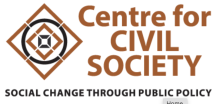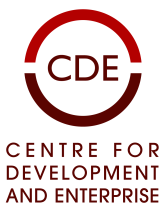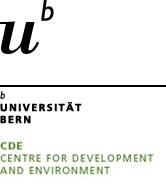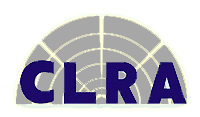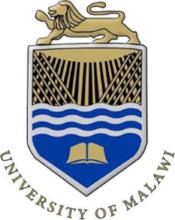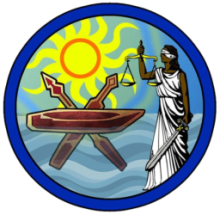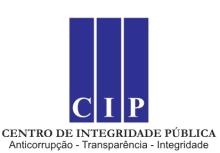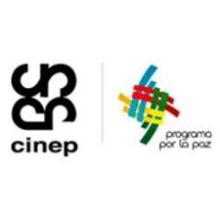The Land Library includes resources from more than 1,900 national and international information providers. Learn more about the organizations and institutions using the Land Portal to share their open-access research, data and stories.
Centre for Civil Society
Vision: CCS envisions a world where each individual leads a life of choice in personal, economic and political spheres and every institution is accountable.
Mission: Centre for Civil Society advances social change through public policy. Our work in education, livelihood, and policy training promotes choice and accountability across private and public sectors. To translate policy into practice, we engage with policy and opinion leaders through research, pilot projects and policy training.
We are India’s leading liberal think tank, ranked 5th in India and 83rd in the world by the annual study conducted by 2021 Global Go To Think Tank Index Report released by the University of Pennsylvania.
Centre for Development and Enterprise
The Centre for Development and Enterprise (CDE) is an independent policy research and advocacy organisation. It is one of South Africa’s leading development think tanks, focusing on critical national development issues and their relationship to inclusive economic growth and democratic consolidation. By examining South African and international experience, CDE formulates practical policy proposals outlining ways in which South Africa can tackle major social and economic challenges. CDE has a special focus on the role of business and markets in development.
Established in 1995 CDE offers policy advice on complex challenges to all stakeholders, including government, our private sector funders and the broader public. The advice is informed by rigorous research, drawing on both international and local literature, reflecting lessons and experiences from both the public and private sectors, and high-level discussion.
CDE has a full-time staff of about 20 people and a core of senior consultants, and makes extensive use of local and international academics and other experts. Research produced for CDE is distilled into summary reports containing proposals that are intensively tested before different audiences prior to being released.
CDE runs an active outreach programme, aimed at disseminating its research and proposals as efficiently as possible. Thanks to its convening power, expert stakeholders are commonly brought together to debate research findings and policy proposals, and invited to take action.
Centre for Development and Environment
CDE’s mission is to contribute to sustainable development in countries of the North, South, and East, through:
- research partnerships
- education and training
- development of concepts and tools
- raising awareness,
- policy advice.
Centre for Development and Environment
CDE focuses on:
- management of natural resources,
- integrated regional development, and
- interventions that mitigate syndromes of global change.
CDE places special emphasis on:
- highland-lowland interactions, and on
- high-potential – low-potential
- centre – periphery relationships.
CDE employs disciplinary and transdisciplinary approaches. Linking analysis and synthesis, and combining high-end and low-end methods, such as GIS-based earth observation and participatory field-based approaches, are typical of our programmes.
CDE supports the principles of subsidiarity, empowerment and partnership, while acknowledging the importance of research, planning and decision-making at regional, national and international levels.
Centre for Economic and Social Studies
The Centre for Economic and Social Studies (CESS) was established as an autonomous research Centre in 1980. Appreciating its role in the promotion of research and training, the Indian Council of Social Science Research (ICSSR), Ministry of Human Resource Development, Government of India, recognized it as a national institute in the year 1986 and included the Centre in its network of institutions. The predominant activities of the Centre constitute conducting interdisciplinary research in analytical and applied areas of social sciences, encompassing socio-economic and other aspects of development. It has been recognized as a Centre for advanced research by the Dr. B. R. Ambedkar Open University and the Osmania University. The (Central) University of Hyderabad has also recognized it as Research Centre for external registration for Ph.D programs in Economics and Anthropology. The Centre has evolved a unique teaching–cum-research training programme leading to M.Phil and Ph.D in development Studies.
Centre for Economic Policy Research
The Centre for Economic Policy Research (CEPR) was founded in 1983 to enhance the quality of economic policy-making within Europe and beyond, by fostering high quality, policy-relevant economic research, and disseminating it widely to decision-makers in the public and private sectors. Drawing together the expertise of its Research Fellows and Affiliates, CEPR initiates, funds and coordinates research activities and communicates the results quickly and effectively to decision makers around the world. The Centre is an independent, non-profit organization and takes no institutional policy positions.
CEPR is based on what was (in 1983) a new model of organization, a “thinknet”. It is a distributed network of economists, who are affiliated with but not employed by CEPR, and who collaborate through the Centre on a wide range of policy-related research projects and dissemination activities. CEPR was founded at a time when European economics had relatively few “centres of excellence” with international reach but many excellent researchers, widely dispersed, with few opportunities for interaction. One of CEPR’s main achievements has been to create a virtual “centre of excellence” for European economics through an active community of dispersed individual researchers, working together across international boundaries to produce high-quality research for use by the policy community and the private sector.
CEPR’s “thinknet” structure also supports the Centre’s pluralist and non-partisan stance. The Centre actively encourages diversity of opinion and independent thought in its network, with the result that CEPR's output reflects state-of-the-art thinking from a range of perspectives. This helps enrich and enliven policy debates.
Today, CEPR’s network of Research Fellows and Affiliates includes over 1,000 of the top economists conducting research on issues affecting the European economy. Researchers are based in their home institutions (universities, research institutes, central bank research departments, and international organisations), and collaborate through the Centre in the pursuit of policy-relevant economic research and dissemination activities. This differs from traditional thinktanks or research institutes, where there is a “in house” research staff. CEPR researchers areappointed by the Centre's Appointments Committee, chaired by the Centre's President. These researchers are organized in ten Programme Areas, each led by Programme Directors who provide intellectual leadership and quality control. The work of the Programme Directors is guided by the Centre's Director and Research Director.
Centre for Good Governance, Hyderabad
Center for Good Governance was established in October, 2001 by then Government of Andhra Pradesh in collaboration with the Department for International Development and the World Bank to help it achieve the state's goal of Transforming Governance.
Centre for Interdisciplinary Studies in Environment and Development
The Centre for Interdisciplinary Studies in Environment and Development (CISED) was conceptualised by a group of scholars with the mission of promoting environmentally sound and socially just development by contributing critically and constructively to public and academic debates through interdisciplinary research, teaching and outreach issues at the environment-development interface.
CISED was setup in 2001 as an independent Trust. The Institute for Social and Economic Change (ISEC) Bangalore agreed to host CISED as a Centre of Excellence. It functioned in that capacity for 8 years, till June 2009, when it was merged with the Ashoka Trust for Research in Ecology and the Environment (www.atree.org), Bangalore. At this point, the Board of CISED merged with the Board of ATREE, and CISED faculty and other staff joined the ATREE faculty/other staff. CISED’s work and mission are now part of a much larger Centre for Environment & Development within ATREE (https://atree.org/research_centres).
This website serves as an ARCHIVE of the work done by CISED prior to its merger with ATREE.
All general enquiries should be addressed to info@atree.org. Any specific communications about CISED may be sent to slele@atree.org (Tel: 080-2363-5555)
Centre for Land Tenure Studies
The Centre for Land Tenure Studies was opened at the Nowegian University of Life Sciences (NMBU) on the 27th of June 2011 resulting from a joint initiative by researchers at the Department of International Environment and Development (Noragric), the School of Economics and Business, and the Department of Landscape Architecture and Spatial Planning. In 2012 was joined by the Department of Ecology and Natural Resource Management.
Mission
The Centre for Land Tenure Studies (CLTS) at NMBU is established to further the study of land tenure. Land tenure studies define a broad and complex field of study cutting across many disciplines. For CLTS this entails, but is not limited to, the following activities:
- Provide a common arena for discussing land tenure issues, including a series of seminars directed to present new research or important theoretical perspectives. This may be designed as part of an educational program.
- Promulgate a joint series of working papers.
- Support international publication of articles and books.
- Develop and conduct joint courses at both Master and PhD level.
- Initiate and support exchange of researchers.
- Participate in research networks related to land tenure.
- Maintain a public list of collaborating institutions and researchers.
- Initiate and develop applications for research funds to support basic research on land tenure both by our own efforts and in collaboration with other research groups working on land tenure questions.
In its activities the centre will use English as its working language as far as practically possible. In short we may say that the mission of the Centre for Land Tenure studies is to enhance collaboration across departments at NMBU; to strengthen the visibility of NMBU activities within the field of land tenure; to strengthen NMBU’s international collaboration and networks within the field; to contribute to research and knowledge generation on land tenure issues; to help build capacity in the South and in Norway within the field; to disseminate policy lessons, and to contribute to policy debates.
Centre for Legislative Research and Advocacy
CLRA is an independent, not-for-profit, non-partisan initiative, which works to support and strengthen Parliament and legislatures so as to realise the values of democratic governance. Through research, advocacy, networking and other allied activities CLRA seeks to promote and reinforce the constitutionally assigned roles and functions of parliamentary institutions. This includes supporting institutional development and capacity building aimed at cultivating a well-functioning, sustainable and pluralistic system of democratic polity. CLRA is the pioneer organization in this comprehensive area of work in India. CLRA works closely with civil society groups, parliamentary institutions, legislators, political parties, civil servants and media to create participatory and collective wisdom and praxis in the policy and decision-making process.
The Indian Parliament plays a supreme role in the Indian political system and is a central institution in the framework of governance. Parliament nowadays has become more a multifunctional body while making policies and laws, overseeing the Executive, and representing people remain its core functions; Parliament’s role has extended to areas of conflict resolution, national integration, grievance ventilation, informational activities, etc. Against this backdrop, the test is for the Parliament to exercise its constitutionally assigned functions and capabilities to promote greater answerability, transparency and participation.
Centre for Liveable Cities Singapore
The Centre distills key learning points from Singapore’s urban development journey since its independence in 1965, while creating knowledge to address emerging urban challenges. It shares this knowledge with local and international urban leaders, with the aim of positioning Singapore as a global hub for urban solutions. The Centre’s work spans four main areas:
Research
The Centre focuses on two key research questions:
- How has Singapore transformed since its independence in 1965?
- How should urban development knowledge be applied to address current and future challenges for Singapore and other cities?
The Centre’s research output includes the Urban Systems Studies series focusing on key areas of Singapore’s urban development, and forward-looking research publications that tackle both persistent and emerging urban challenges by drawing on the Centre’s global network to develop city case studies.
Capability Development
Each year, the Centre conducts practitioner-oriented training for more than 700 Singaporean and international participants. Tiered at different management levels, the Local Programmes are designated key training for Public Service officers in Singapore’s Infrastructure and Environment sector, and instill a deeper and broader understanding of Singapore’s model for urban governance and policy dilemmas. The Centre’s International Programmes are designed to encourage the application of guiding principles for high-density, high-liveability urban development and management, as drawn from Singapore’s experiences and adapted to the challenges of participants’ cities.
Knowledge Platforms
The Centre shares knowledge and cultivates thought leadership on liveable and sustainable cities through the flagship World Cities Summit, as well as a range of publications and partnerships.
Advisory
The Centre provides advisory services on urban and infrastructure planning, development and management to developing cities. Cities the Centre has worked with include Amaravati, Andhra Pradesh, India; and Colombo, Sri Lanka.
Centre for Policy Research
The Centre for Policy Research (CPR) has been one of India’s leading public policy think tanks since 1973. The Centre is a non-profit, non-partisan independent institution dedicated to conducting research that contributes to the production of high quality scholarship, better policies, and a more robust public discourse about the structures and processes that shape life in India.
CPR’s community of distinguished academics and practitioners drawn from different disciplines and professional backgrounds. The institution nurtures and supports scholarly excellence. However,the institution as such does not take a collective position on issues. CPR's scholars have complete autonomy to express their individual views. Senior faculty collaborate with more than 50 young professionals and academics at CPR and with partners around the globe to investigate topics critical to India’s future.
Centre for Research on Multinational Corporations (Stichting Onderzoek Multinationale Ondernemingen)
The Centre for Research on Multinational Corporations (SOMO) is a critical, independent, not-for-profit knowledge centre on multinationals. Since 1973 we have investigated multinational corporations and the impact of their activities on people and the environment. We provide custom-made services (research, consulting and training) to non-profit organisations and the public sector. We strengthen collaboration between civil society organisations through our worldwide network. In these three ways, we contribute to social, environmental and economic sustainability.
Centre for Rural Development
Our Vision – To convert poor into power.
Our Mission – CRD”s mission is to ensure sustainable livelihood of poor people by using local resources and skills through community participation.
Centre for Rural Development, Humboldt University Berlin
Mission
SLE has provided hands-on vocational education and training for future experts and managers in the field of international development cooperation for the last fifty years. They offer postgraduate studies, training courses for international experts, and practice-oriented development research and consultancy to organizations and universities active in this field.
Centre for Social Research, University of Malawi
Our mandate
At the core of our mandate is ‘to promote and undertake applied social science research including conducting monitoring and evaluation of development programmes so as to generate information on priority problems of the country and the region’
"Centre for Social Research (CSR) is an organ of the University of Malawi that conducts and promotes excellence in academic and applied social science research in partnership with the public and private sectors so as to inform policy and offer training for capacity building".
CSR has been and is still Malawi's leading social science research and consulting institution since 1978. Our research and training programmes are development oriented to suit the everchanging policy environment in Malawi and sub-Saharan Africa
Centre for the Study of African Economies - Oxford University
The Centre for the Study of African Economies (CSAE) is an economic research centre within the Department of Economics at Oxford University.
CSAE carries out economic research with a particular focus on Africa. Its aim is to improve economic and social conditions in the poorest societies. CSAE researchers often use unique data which give them unrivalled insight into the underlying issues. The resulting policy recommendations address questions in the economic and political spheres as well as in civil society in developing countries.
These recommendations based on quantitative analysis are the distinctive feature of the CSAE’s work and set it apart from many other research institutions.
The CSAE’s work has played a major part in making Oxford University’s Department of Economics receive the highest ranking of all UK university Economics’ departments for its academic research during the latest independent evaluation.
Centre of Research in the Economics of Development
The Centre of Research in the Economics of Development (CRED) is a center for research devoted to studying problems of economic development, particularly issues of micro-institutions, collective action, market development, and political economics.
Most of the research carried out inCRED is based on first-hand data collected by members in various countries of Africa, Asia, and Latin America. Works of both theoretical and empirical nature are regularly produced by a staff of six permanent academic members and between 10to 15 PhD students and post-doc researchers.
The main themes of research around which works of the CRED articulate are the following:
- Institutions, Social Norms and Development
- Aid, Governance, and Development
- Poverty and Livelihood Strategies
- Political Economics, Conflicts and Agrarian Relationship
Centre on Housing Rights and Evictions
The Centre on Housing Rights and Evictions (COHRE) was a Geneva-based international non-governmental organisation founded in 1994 by Scott Leckie as a foundation in the Netherlands (Stichting COHRE). [wikipedia]
Centre on Integrated Rural Development for Asia and the Pacific
The Centre on Integrated Rural Development for Asia and the Pacific (CIRDAP) is a regional, intergovernmental and autonomous organisation. It was established on 6 July 1979 at the initiative of the countries of the Asia-Pacific region and the Food and Agriculture Organization (FAO) of the United Nations with support from several other UN bodies and donors. The Centre came into being to meet the felt needs of the developing countries at that time as an institution for promoting integrated rural development in the region.
Centre pour l'Environnement et le Développement Cameroun
Mission et Objectifs
Le CED s’est donné pour mission de contribuer à la protection des droits, des intérêts, de la culture et les aspirations des communautés locales et autochtones des forêts d’Afrique Centrale, par la promotion de la justice environnementale et de la gestion durable des ressources naturelles dans la région.
Nos objectifs sont les suivants:
- Réduire les impacts écologiques et sociaux des industries extractives;
- Contribuer au développement local des communautés et des peuples autochtones, en respectant leur environnement et leur culture;
- Contribuer à changer les politiques et les pratiques de gestion des forêts, de la biodiversité et des industries extractives, pour des raisons d’efficacité et de promotion de la participation ;
- Contribuer à l’amélioration des politiques foncières pour sécuriser les droits des communautés sur leurs terres.
Notre vision
Notre vision est celle de voir une société dans laquelle la gestion des ressources naturelles (forêt, pétrole, mines, foncier) assure, à long terme, la durabilité sociale, économique et écologique.
Centro Andino de Acción Popular
1. Origen y evolución de la organización:
Nace como grupo de trabajo pare el intercambio de experiencias en organización, capacitación campesina, así como la discusión de la problemática agraria; a mediados de 1975. Se instituye formalmente en 1977. Sus estatutos jurídicos son reconocidos el lo. de Julio de 1977, con el nombre de Centro de Arte y Acción Popular. En 1983 se reforma los Estatutos y cambia su denominación a Centro Andino de Acción Popular.
2. Objetivos:
Manteniendo el espíritu de su origen, los actuales objetivos generales se concentran en: a) Generar y proponer modelos alternativos de desarrollo participativos y democráticos.
b) Implementar acciones de capacitación, promoción y desarrollo cuyo efecto-impacto permitan la viabilización de modelos alternativos.
c) Ejecutar acciones que permitan eliminar la situación de sometimiento del sector rural mejorando su participación e inserción en el mercado y en la sociedad nacional.
d) Desarrollar tecnologías agropecuarias adecuadas a las condiciones campesinas y a la preservación de su entorno ecológico y medio ambiente.
e) Promover el mejoramiento de las condiciones de salud y salubridad de los sectores populares.
f) Investigar y debatir aquellas situaciones de la realidad nacional que reproducer el empobrecimiento de los sectores populares, particularmente en el sector rural y del campesinado indígena.
g) Potenciar, vía la capacitación, el intercambio de experiencias y el reconocimiento del conocimiento popular, la capacidad tecnológica y desarrollo del pensamiento en función popular.
3. Areas Programáticas:
a) Cobertura y ejecución de proyectos:
Microregiones de la Sierra Central y Norte con mayoritaria población campesino indígena y sectores de subtrópico
Agricultura Andina pare el mercado interno (tubérculos, cereales, leguminosas).
Pecuaria: animales menores de producción doméstica (Porcinos, ovejas, aves)
Recuperación y mantenimiento de suelos: conservación ecológica, reforestación, recuperación biomasa.
Post cosecha, ensilaje de cereales.
Sanidad animal
Construcción de infraestructura: sistemas de agua de uso doméstico; conducción y distribución de agua de riego, casas comunales y centros de acopio.
Riego: diseño y ejecución de pequeños sistemas mejorados y capacitación para optimizar el uso del agua.
Fortalecimiento de Sistemas Financieros locales: Programas de crédito a través de cooperativas de ahorro y crédito y Cajas Rurales locales, con fondos en Administración y/o apalancamiento y fideicomiso. Capacitación en administración y gestión.
Cada acción implica además, como componentes investigaciones puntuales específicas, capacitación y transferencia técnico-administrativa y la organización de la acción, lo que condensa la metodología del CAAP.
b) Investigación y experimentación agropecuaria:
a nivel de Granja y en parcelas campesinas sobre reproducción de especies forestales nativas y exógenas; cultivos andinos, manejo y mejoramiento de pasturas; agricultura sostenible; reproducción de animales menores.
c) Investigación socio-económica:
problemática andino-indígena; análisis de coyuntura macro económica y política; procesos de aprendizaje y comunicación, microregión; sociedad y democracia.
Economía y Sociedad es un área temática específica y particular, de carácter analítico y académico que provee análisis de coyuntura y conflictividad social, buscando conceptualizaciones y parámetros más adecuados a nuestra realidad andina.
d) Investigación agraria:
coyuntura agraria; manejo y gestión de recursos naturales; mercados y precios; iniciativas Productivas.
e) Salud:
Análisis de la relación salud-enfermedad-nutrición en sectores populares; estudios sobre sistemas tradicionales de salud; capacitación para la prevención de enfermedades prevalentes agudas.
f) Programa Editorial:
Revista Cuadrimestral Ecuador Debate (37 números editados a la fecha).
Serie Estudios y Análisis sobre aspectos de la realidad social.
Serie Ciencia y Tecnología que den cuenta, de las investigaciones técnicas; material que recoge las experiencias de promoción.
Colección Diálogos, resultados de debates de ensayos sobre Problemas de interés nacional.
Cuadernos de Capacitación Popular; y de Educación Popular, en apoyo a las actividades de cobertura y ejecución de proyectos.
g) Capacitación:
Desarrollo de técnicas de comunicación y transferencia.
Organización de eventos dirigidos a técnicos, promotores sobre aspectos metodológicos, de conocimiento s octal y desarrollo tecnológico.
h) Documentación e información:
contiene bancos de datos sobre estadísticas económicas, demográficas, agropecuarias, encuestas, prensa plana. Documentación y bibliografía sobre problemática agraria, andino-indígena, agronómica, economía, salud, educación, capacitación, desarrollo rural.
Centro de Asistencia Legal Para Pueblos Indígenas
Centro de Cultura Luiz Freire
Centro de Direitos Econômicos e Sociais
O Centro de Direitos Econômicos e Sociais (CDES) é uma organização não governamental de direitos humanos. Criada no ano de 2000, em Porto Alegre, dentro do contexto social e político de realização do I Fórum Social Mundial que acontecia na cidade naquele ano. O CDES DIREITOS HUMANOS, desde o seu início, pautou sua atuação na defesa e promoção dos direitos humanos econômicos, sociais, culturais e ambientais, realizando trabalhos e atividades voltadas a promoção, proteção e defesa dos DHESC através de ações de pesquisa, assessoramento técnico e formação realizadas a partir de uma perspectiva crítica dos direitos humanos. Neste período, o CDES teve a sua atuação voltada a consolidação da luta urbana pelo acesso à terra no Estado do Rio Grande do Sul, mediante a defesa jurídica das ocupações contra os despejos, do apoio técnico aos assentamentos informais para buscar a regularização fundiária e do apoio a produção habitacional de interesse social.
Centro de Estudios Rurales y de Agricultura Internacional
CERAI, Centro de Estudios Rurales y de Agricultura Internacional, es una Organización No Gubernamental de Desarrollo de carácter laico, progresista e independiente especializada en el desarrollo rural y pesquero sostenible bajo el enfoque de la soberanía alimentaria.
Nacimos en el año 1994 en Valencia, con la intención de crear una organización que abordase el mundo agrícola y rural español y europeo, las relaciones con el comercio internacional, el problema de las desigualdades internacionales, el medio ambiente, la agricultura ecológica y su futuro, el desarrollo sostenible, el éxodo rural, la sobreexplotación pesquera y ganadera y los déficits del modelo industrial de la alimentación actual.
Queremos seguir contribuyendo a la transformación del mundo rural actual y participar de los movimientos sociales que están exigiendo la soberanía alimentaria y el desarrollo humano ( no sólo económico) de todos los pueblos del mundo.
Queremos ser, en definitiva, una semilla para el cambio. Una organización más, que acompañe, que incida políticamente, que apoye en los procesos que ya están logrando el mundo rural en el que creemos. Un lugar, por qué no, en el que se cultiven y germinen algunas de las ideas e iniciativas que generen nuevas vías de transformación personal, local y global que conviertan en una realidad el mundo rural que defendemos.
Centro de Estudos e Pesquisa de Comunicação
SEKELEKANI é uma instituição moçambicana independente, sem fins lucrativos, de promoção de comunicação para o desenvolvimento, conceito que se refere a sistemas de comunicação em dois sentidos, orientados para enaltecer o diálogo entre os decisores de políticas públicas e as partes interessadas, nomeadamente as comunidades destinatárias do desenvolvimento, permitindo-lhes exprimir os seus pontos de vista, as suas aspirações e preocupações, participando, desse modo, na formulação da agenda do seu desenvolvimento.
Centro de Estudos sobre África, Ásia e América Latina
O CEsA - Centro de Estudos sobre África, Ásia e América Latina é uma unidade de investigação do Instituto Superior de Economia e Gestão da Universidade de Lisboa. Está vocacionado para o estudo do desenvolvimento económico e social nos países em desenvolvimento da África, Ásia e América Latina, mas com uma ênfase particular no estudo dos países de língua portuguesa, China e Ásia-Pacífico, assim como Brasil e outras economias do Mercosul. No entanto, o CEsA também incentiva a investigação sobre qualquer outro tema, teórico ou aplicado, relacionado com o desenvolvimento económico e social em geral, relativo a outras regiões, ou transversal a várias regiões.
______________
CEsA (Centre for African, Asian and Latin American Studies) is a research centre within the Lisbon School of Economics and Management at the University of Lisbon. It is dedicated to the study of economic, social and cultural development in developing countries in Africa, Asia and Latin America, although it places particular emphasis on the study of Portuguese-speaking countries, China and Pacific Asia, as well as Brazil and other Mercosur countries. Additionally, CEsA also promotes research on any other theoretical or applied topic in development studies, in other regions generally or across several regions.
Centro de Extensión Universitaria e Divulgación Ambiental de Galicia
O CEIDA -Centro de Extensión Universitaria e Divulgación Ambiental de Galicia- promove a educación ambiental en todos os sectores sociais, así como o intercambio científico e cultural, traballando na procura de solucións aos problemas ambientais e fomentando as boas prácticas cidadás neste eido. É froito dun convenio de colaboración entre a Consellería de Medio Ambiente, Territorio e Infraestruturas da Xunta de Galicia, o Concello de Oleiros e a Universidade da Coruña para coordinar, dinamizar e promover a Educación Ambiental en Galicia.
Os ámbitos de traballo do CEIDA abranguen as seguintes áreas temáticas:
- Conservación
- Medio mariño
- Cambio climático
- Concellos
- Cooperación
- Forestal
- Turismo
Centro de Integridade Publica
O Centro de Integridade Pública de Moçambique, adiante designado abreviadamente CIP, é uma pessoa colectiva de direito privado, dotada de personalidade jurídica, de tipo associação sem fins lucrativos, não partidária, independente, com autonomia administrativa, financeira e patrimonial, que se rege por seus Estatutos e pela demais legislação em vigor.
A visão do CIP é a dum país onde os agentes públicos e privados agem com integridade e probidade na esfera pública, contribuindo para uma gestão pública democrática, transparente e em conformidade com a lei.
A missão do CIP é a de promover a integridade na esfera pública em Moçambique, através da denúncia da corrupção e de irregularidades, em geral, e da advocacia da consciencialização pública e a favor das boas práticas na gestão do bem comum.
Constituem princípios fundamentais orientadores das acções do CIP: a integridade, a transparência, a prevenção da corrupção e a boa governação. Agindo desta maneira, o CIP tem como objectivo geral a promoção e defesa da integridade, da transparência, da ética, da não corrupção e da boa governação na esfera pública em Moçambique.
Centro de Investigación y Educación Popular, Programa por la paz
El Centro de Investigación y Educación Popular, CINEP/Programa por la paz, es una institución fundada por la Compañía de Jesús desde hace más de cuatro décadas. En 1972 se crea el CINEP como una fundación sin ánimo de lucro, con la tarea de trabajar por la edificación de una sociedad más justa y equitativa, mediante la promoción del desarrollo humano integral y sostenible. En 1987, nace el Programa por la Paz como una propuesta cuyo objetivo central es aportar a la construcción de una paz justa y duradera en el país. Y en 1988 el CINEP en alianza con la Comisión Intercongregacional de Justicia y Paz de la Conferencia de Religiosos de Colombia crean el Banco de Derechos Humanos y Violencia Política cómo un servicio que hace visible la memoria de las víctimas y denuncia las graves violaciones que ellas sufren.
Nuestra Misión:
Apostamos por la vida, trabajamos por una sociedad justa, sostenible y en paz
Nuestra Visión:
En el año 2020 ser un centro social orientado por la Compañía de Jesús que ha desarrollado propuestas para la construcción de región y de nación, encaminadas a la protección y promoción de la vida, los derechos humanos, el desarrollo sostenible y la paz. Además aportar de manera significativa al análisis del país y Latinoamérica, con el desarrollo de la investigación analítica y la formación de gestores sociales e investigadores con un pensamiento crítico y propositivo, teniendo como base una postura ética fundamentada en lo humano. Contando con una plataforma administrativa y de gestión con credibilidad y transparencia para el soporte y desarrollo pleno de su acción.

